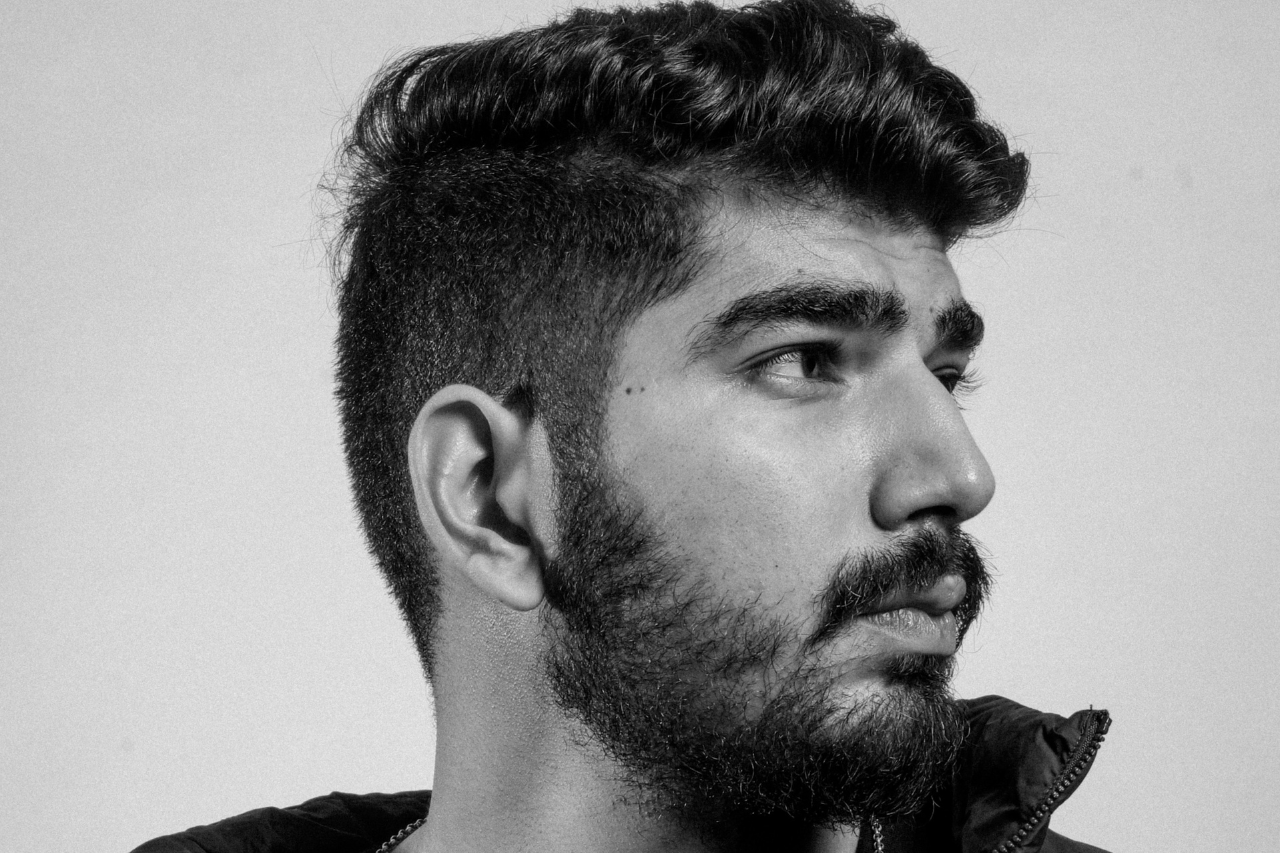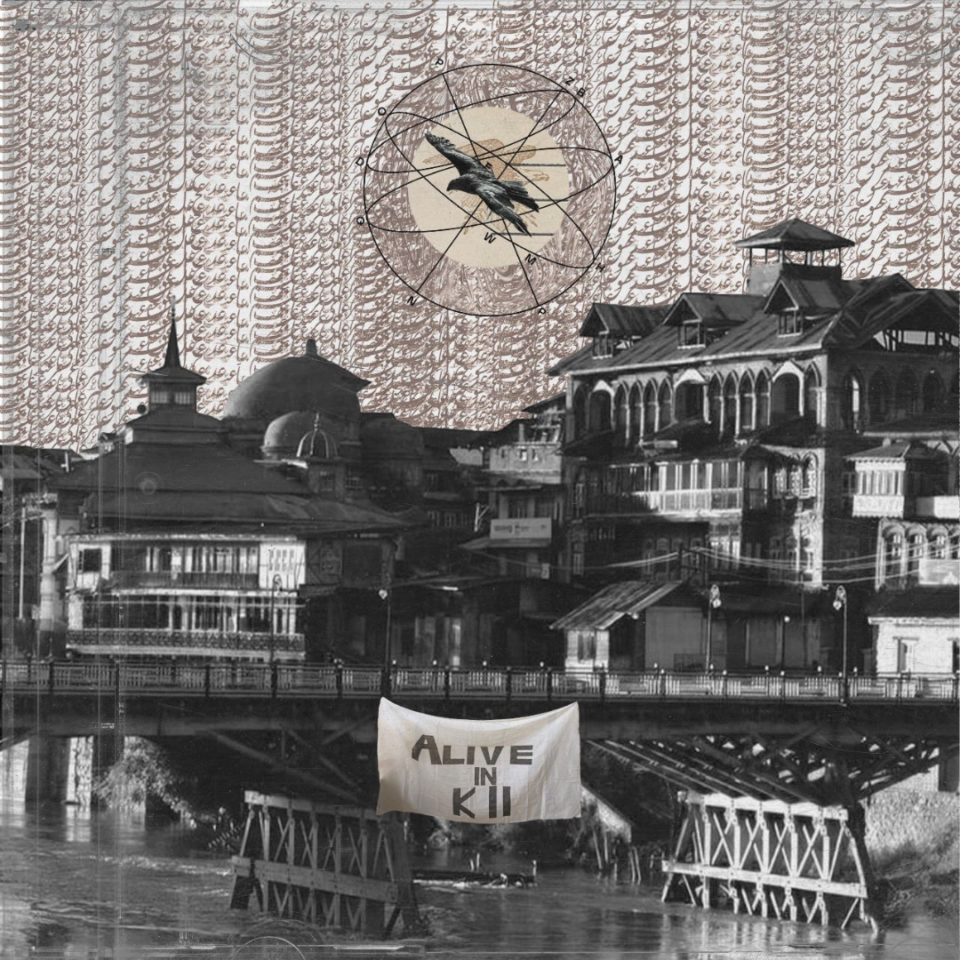Kashmiri artist's latest EP is a profound meditation on memory, politics and personal truth


Kashmiri hip-hop artist Ahmer. Photo: Courtesy of the artist
Have you ever had that moment when you hear a song and instantly know something’s different? That was me in 2019, just scrolling through random tracks, when I stumbled upon Ahmer‘s “Elaan” with Prabh Deep and Sez On The Beat.
Now here’s the thing: I didn’t even know what Koshur was at the time, but whatever Ahmer was spitting, it went straight to the gut. His words came so harsh that the language barrier just melted away. It wasn’t about the interpretation of bars and their meaning, rather it was the intensity, the rawness, which came through. Ahmer wasn’t just rapping but he was taking you to a deeper part where something greater was going on, in a place where you cannot ignore.
Fast forward into today, Ahmer’s new project Alive in K II is a logical natural evolution of what he has been building since those early days. If you rewind through his albums such as Little Kid Big Dreams, Inqalab, or Azli, you know he is a storyteller, a voice for Kashmir that refuses to be silenced. Each of these efforts has stripped away layers of what it means to exist in a place like Kashmir, one of the most misunderstood regions in the world. With Alive in K II, Ahmer isn’t just telling that story; he’s digging deeper.


In a conversation with Rolling Stone India, Ahmer opens up on the fact that Alive in K II is more than just a sequel. It is a reflection of the growth in him as an artist and as a person. “The stories in Alive in K will always be personal and professional. The thing I love most about music is that it transcends geography,” he says. When you listen to him, you get that his music isn’t tied to borders even though it’s rooted in the struggles of Kashmir. And that is the magic of it — Ahmer’s voice is Kashmiri, but his message? It is universal.
If Alive in K — released in June this year — was like two guys in the studio just vibing and cooking up something raw and real, the sequel is more like a slow simmer: layers that Ahmer has been holding onto for a while. “Part 1 was 30KEY! and me just having fun through the entire process but Part 2 was us stretching out a bit and giving it time. I wanted to tell so many things and there were also so many things that hadn’t really been said for some time,” says Ahmer. It is this “time” that makes this project hit different. He has seen and lived through so much in the past couple of years, and rap isn’t just his outlet— it is his necessity and you can feel that urgency in every track.
It is impossible to talk about Ahmer without discussing the politics of Kashmir. It runs through the fabric of his work. “Politics runs deep in the valley,” says Ahmer. “As an artist, I have never stopped growing, learning and unlearning.” But for him, that growth goes beyond honing his craft; it involves a world in which there are determined efforts to stifle voices like his. Still, Ahmer would not be contained as his music is very personal, but it’s also focused on resistance. In a part of the world where freedom of expression can get you into serious trouble, every verse from Ahmer feels like a statement of survival.
What’s most striking with Alive in K II is how it succeeds in demonstrating raw and accessible. Ahmer’s music is for the people, not those who would say, “Finally, something that gets into the soul of Kashmir”; his music is for anybody who will listen. He performed in cities across India; for audiences who may not even know where Kashmir is on a map, or the complexities of its political existence. “Since day one, I have made an effort to make my music accessible,” he says. And while heavy with the themes of survival and resilience, the music itself is far from impenetrable. You don’t need an intimate knowledge of geopolitics to feel what Ahmer is pouring his heart out about. It’s all there in the music — the pain, the anger, but also the hope.
The soundscape in Alive in K II reflects his Kashmiri roots. Along with 30KEY!, he’s woven all those folk elements that are taken directly from Kashmir into the beats, giving them a flavor of modern beats which makes it fresh but connected to the olden days as well. He says, “We love to dig samples, chop up old Kashmiri songs and blend them with modern drums.”
Of course, there is always an element of pressure to compose in a setting like Kashmir. There are external points of pressure alone, but for Ahmer, it’s all about the internal battles. “Playing safe is safe,” he says. “The only struggle I care about is with my head and heart.” That’s what makes Ahmer so distinguished. He’s not here to sugarcoat the truth or shy away from the hard stuff. But then he is not one of those martyr types. His music is the way he tugs at everything in his life — good, bad and ugly.
Alive in K II has warranted reception that has been nothing short of growth. His fanbase has grown, and more people are engaging with his stories. But for him, this has never been about the numbers. “I have my own lane, and that’s how it’ll be,” he says. He does not seem to chase trends or fit into someone else’s box. Kashmir is the “beautiful mess” he calls it, and his music is the soundtrack to that reality. Whether you get all of it or not, it’s okay if the nuances allude to you — that’s fine. Because Ahmer isn’t just telling stories; he’s inviting you to survive them with him.
The rock artist’s Believe India Tour wraps up in Hyderabad on Mar. 30, 2025
Jackson Wang's ‘GBAD’ is a powerful artistic statement on the importance of boundary-setting as a…
AI tools recreating Ghibli’s signature style are merely a symptom of a larger AI slop…
The third edition of Prog Encounters features performances ranging from Mumbai-based act Daira, Bengaluru prog…
The singer-songwriter and actor is adapting her favorite Tamil classics with darker, heavier renditions, bringing…
Stars of alt-rock, classic rock and stage and screen assemble in New York to salute…